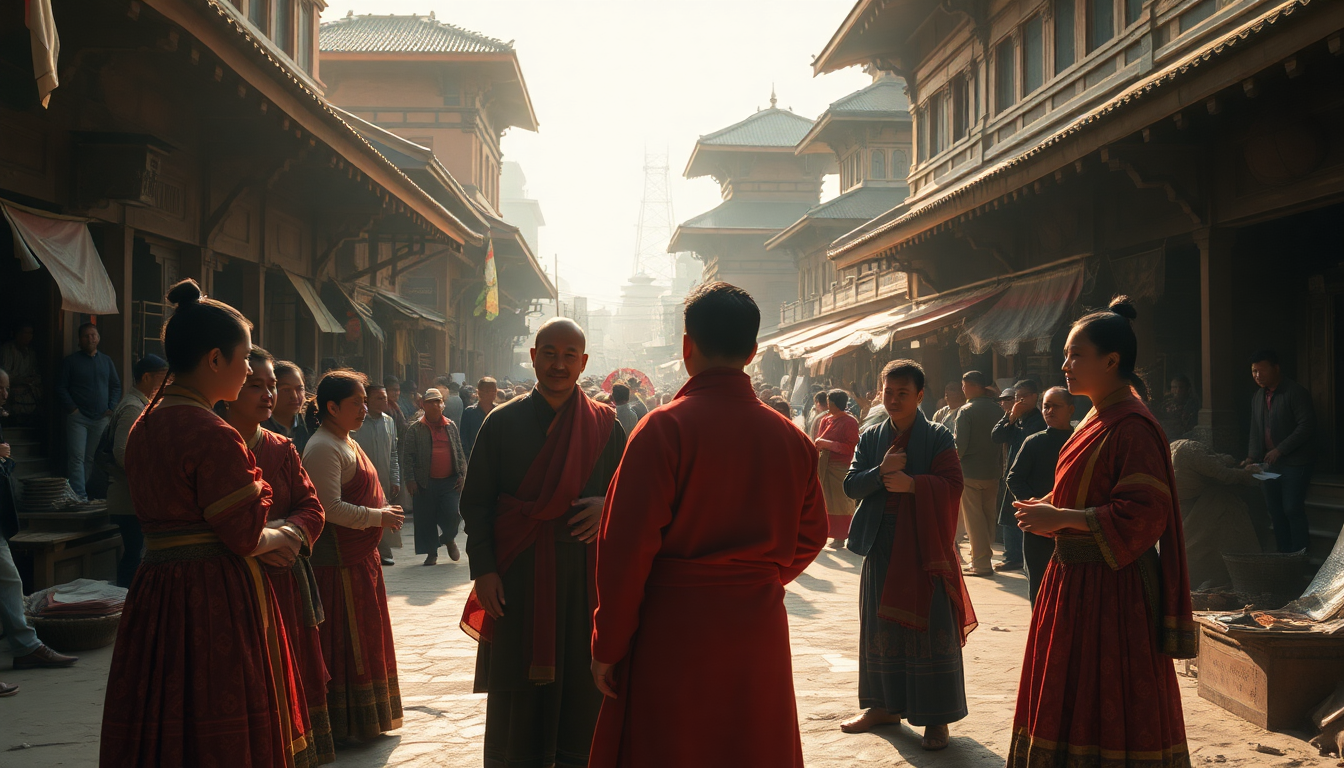Table of Contents
Khyentse Norbu, better known in the film world as Dzongsar Jamyang Khyentse Rinpoche, has just wrapped up the principal photography for his latest film, “Perfect God.” Shot over a month in the vibrant city of Kathmandu, Nepal, this ambitious project has recently teased audiences with its first visuals. What can we expect from this film that promises to weave traditional performance with deep existential themes?
Diving into the Story of Perfect God
At its core, “Perfect God” is an adaptation of Samrat Upadhyay’s touching short story, “The Limping Bride,” featured in his collection “Arresting God in Kathmandu.” The narrative revolves around Ram, a middle-aged Behrupiya—an artist who brings various deities and characters to life during weddings and events across Kathmandu. But when tragedy strikes with the sudden death of his wife, Maya, Ram is thrust into a whirlwind of emotional chaos that goes beyond his typical performances. Now, he must navigate the challenges of raising his son, Moti, an aspiring photographer who is wrestling with his own struggles, including alcoholism and joblessness. Can we relate to the burdens of balancing personal grief and family responsibilities?
Norbu’s interest in characters who exist in the gray areas of identity shines through in this film. In a recent interview, he expressed his fascination with those who navigate complex identities yet exhibit remarkable resilience. This theme resonates deeply, inviting viewers to reflect on their own journeys of survival against the odds. Isn’t it incredible how storytelling can mirror our own life experiences?
The Artistic Journey Behind the Film
Norbu’s creative exploration of the Behrupiya tradition began with a chance encounter that sparked the idea of merging this cultural practice with Upadhyay’s narrative. His storytelling approach often involves weaving together multiple tales, creating a rich tapestry that captures the complexities of life itself. This unique style not only adds depth to the film but also engages viewers, many of whom might find echoes of their own stories in the narrative. Have you ever watched a film and felt like it was telling your story?
Once “Perfect God” hits screens, audiences can expect Norbu to continue delving into themes he has explored in his previous works, including “Pig at the Crossing” and “The Lady with the Fangs and a Moustache.” With a filmography that includes acclaimed titles like “The Cup” and “Travellers & Magicians,” Norbu consistently engages with cultural and spiritual narratives, carving out a unique voice in the cinematic landscape.
Exploring Perfection and Spirituality
The title “Perfect God” prompts us to ponder the notion of perfection, especially in spiritual contexts. Norbu raises a thought-provoking question about the existence of a flawless deity, hinting that perhaps real perfection is found in the inherent goodness within humanity. This aligns beautifully with Buddhist philosophies that stress the importance of recognizing and nurturing the basic goodness in every individual. What if the key to understanding spirituality lies in our everyday actions and kindness?
As Norbu skillfully blends his cinematic ventures with his dedication to Buddhist teachings, he stands out not just in filmmaking but also within the spiritual community. His active involvement in global nonprofit initiatives, which aim to support the education and welfare of monks across various monasteries, underscores his commitment to fostering a deeper understanding of these themes beyond the screen.
As “Perfect God” transitions into post-production, excitement is building for its international festival premieres slated for 2026. This film promises to offer viewers a thought-provoking exploration of spirituality and identity that is both relevant and timeless. Are you ready to embark on this cinematic journey?


